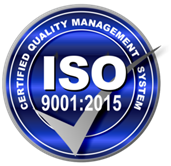Plating Medical Technology
Our Adaptive Plating Technologies can enhance a medical device component made from an engineered polymer, such as PEEK. A component with metal plated surfaces is now conductive, can provide RFI/EMI shielding, and has more abrasion resistance. Whether it’s a plastic molded or 3D printed part, whether a film or fiber, the plating can make the plastic significantly more functional.
As more advanced materials are introduced to the medical industry, product engineers are presented with both challenges and opportunities. Electroplating can give an engineered polymer he added performance characteristics needed to unlock the potential of a new medical device. PEEK is a great example of a medical grade material that is sought for its bio-neutrality and resistance to aggressive medicine and autoclaving requirements. PEEK is also widely used as an implant device because of its high strength to weight ratio.
But what else can be done with PEEK? We have the technology and experience in plating PEEK to provide the extra technological leap for tomorrow’s breakthrough medical product. Whether it’s gold plating on PEEK film or nickel plating on electronic enclosures for EMI shielding, our plating is second to none. We continue to evolve and expand our capabilities at an exponential rate, just as the medical device industry is exponentially improving the health and quality of our lives.
The Continued Improvements of Medical Technology and Quality of Life
The rate of technological advancements in medicine continue at a break-neck pace. Medical technology now has boundless potential where new and more elaborate discoveries are made every single day. For example, the switch to magnesium based orthopedic devices affords biodegradability for implants, which removes the need for excess surgery to remove the implanted device. Even things like the sanitation techniques used for devices like stethoscopes and surgical clamps have improved by leaps and bounds, offering healthier and safer options for patients and healthcare professionals.
The introduction of polymers with plating has helped improve the overall bio-compatibility for many different devices, such as implants. Some metals cause an allergic reaction to some patients, so bio-compatibility was always a concern; devices can now be plated with bio-compatible polymers, affording the ability to give implants to nearly anyone.
Plating on polymer surgical instruments also help make them stronger, more lubricious, and therefore more reliable. These products now boast high corrosion resistance, low wear rates, and autoclavability. These advancements are also important for devices that are implanted in a patient’s body since it lowers the chance of failure or the need for repeat operations. This corrosion resistance also helps doctors too since it allows them to sanitize their instruments with stronger sanitation materials, reducing both the cost of medical equipment and potential for disease or infection.
As technology continues to advance, so too does the quality of life we experience. These advancements in medical technology afford people the ability to live healthier and longer. While plated polymers may just be a small sector of the expansive medical industry, their usage and potential continues to grow everyday due to its numerous benefits.



